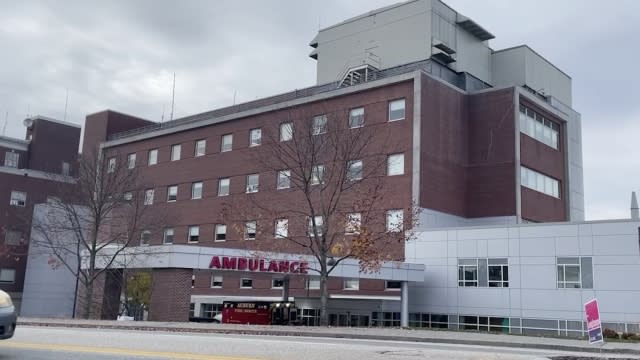How a hospital in Maine is treating victims of a mass shooting

Central Maine Medical Center’s Chief Medical Officer said they saw 14 patients come into their hospital over a 45-minute period Wednesday night.
Trauma and ER doctors that Scripps News' Lindsey Theis spoke with agree: The medical fight for the victims and those caring for them is far from over.
"We had approximately 100 team members who were off duty coming into the hospital," said John Alexander, CMO and COO of Central Maine Healthcare.
Central Maine Medical Center’s trauma team had 14 mass shooting patients Wednesday night. Eight of those patients were admitted. Two were transferred to nearby hospitals. At least three people were listed in critical condition.
"It's really a measure of how many organs are working at the time, how much support do they need? Do they need a breathing machine or ongoing blood transfusion, additional medication to support their blood pressure," said Dr. Leah Tatebe, a trauma surgeon at Northwestern Medicine.
Animations from UCLA research shows why trauma surgeons say gunshot wounds from high velocity weapons, like the one in this shooting, are already complicated. And the first priority is always stopping bleeding.
But these types of gunshots cause more damage to nearby tissues, meaning higher complication rates and extra surgeries.
"It really depends on where the bullet hit. It was a glancing blow, all right, then we can actually fix that. Even if it's a devastating blow, we can do amputations with somebody or we can employ some of these techniques," said Dr. Andre Campbell, a trauma surgeon.
What can also happen in the serious cases in the days to come. High velocity gunshot wounds can cause more tissues around it to die, much like a bruise that gets worse after a day or two. In those cases Tatebe says surgeons will wait and then go back in to complete that operation.
